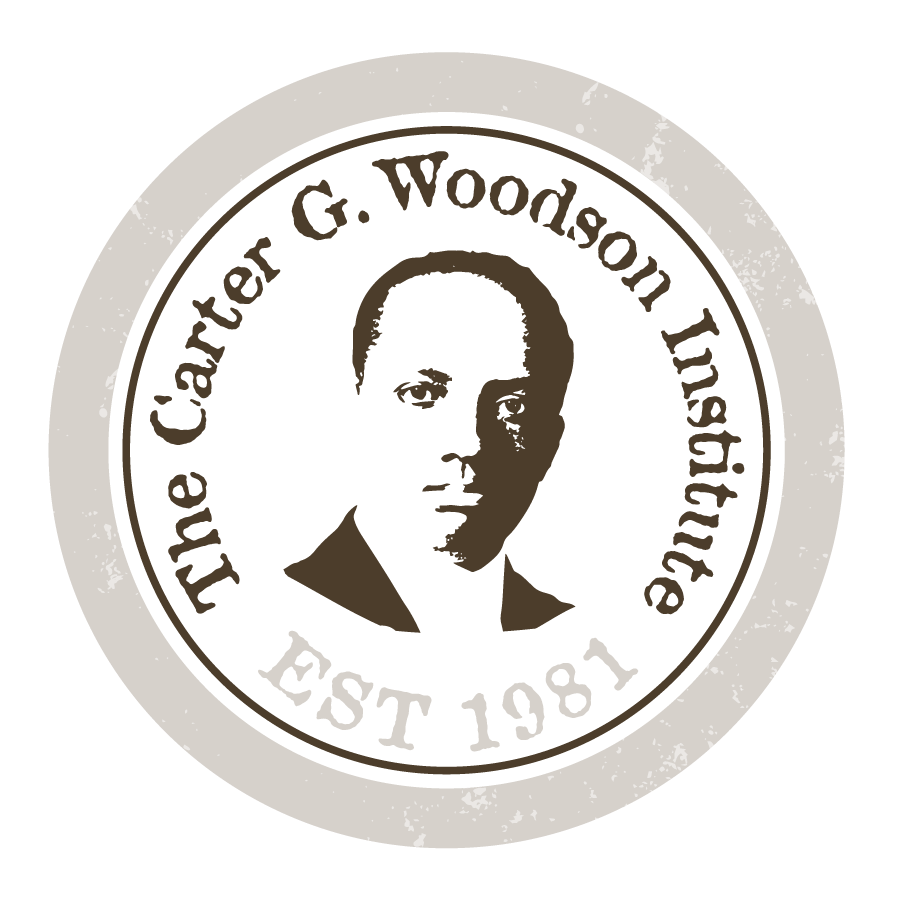The Woodson Institute is named in honor of Carter Godwin Woodson, who was born in New Canton, Virginia in 1875. Among his numerous accomplishments, Woodson pioneered the field of Black Studies by institutionalizing the study of black history through the Association for the Study of Negro Life and History (now called ASALH), which sought to educate the general public about the lives, experiences, and culture of black Americans. The Woodson Institute at UVA draws its mandate from Woodson's deep commitment to education, public engagement, and institutional support for the field of black studies.
This page provides an overview of key dates in Carter Godwin Woodson's life. We strongly encourage those interested in Woodson to read through "Willing to Sacrifice: Carter G. Woodson, the Father of Black History, and the Carter G. Woodson Home," authored by historian Pero Dagbovie and comissioned by the National Park Service. The Association for the Study of African American Life and History (ASALH) also has resources about Carter G. Woodson, the association's history, and black history month.
Timeline of Sigificant Events:
- 1875: Born to Anne Eliza (Riddle) and James Henry Woodson New Canton, Virginia
- 1887: Decided that "I'm going to be Charles Bullard" New Canton, Virginia
- 1892: Moved to West VA to work on the railroad and in the coalmines West Virginia
- 1895: Began school at Frederick Douglass High School Huntington, West Virginia
- 1897: Graduated from Frederick Douglass High School Huntington, West Virginia
- 1897-1898: Attended Berea College, Berea, Kenticky
- 1897-1900: Began teaching in Winona, Fayette County West Virginia
- 1900: Returned to Douglass High School to teach history and work as the principal Huntington, West VA
- 1903: Received Bachelor of Literature from Berea College Berea, Kentucky
- 1903-1907: Worked as a teacher supervisor in the Philippines
- 1907-1908: Attended University of Chicago, where he received a M.A. in European History, Romance Languages, and Literature Chicago, Illinois
- 1908 - 1912: Attended Harvard University as a PhD student, where he became the 2nd African American after W.E.B. Du Bois to receive a PhD from Harvard University Cambridge, Massachusetts
- 1915: Published his first book: The Education of the Negro Prior to 1861
- 1915: "While attending the Exposition of Negro Progress, Woodson founded the Association for the Study of Negro Life and History (ASNLH) (now called the Association for the Study of African American Life and History, ASALH) Chicago, Illinois
- 1915-1947: Published 4 monographs, 5 textbooks, 5 edited collections of documents, 5 sociological studies, 13 articles
- 1916: Established the scholarly publication Journal of Negro History Chicago, Illinois
- 1919-1920: Dean of Howard University's School of Liberal Arts Washington, D.C.
- 1920-1922: Dean at West VA Collegiate Institute - Institute, West Virginia
- 1921: Formed Associated Publishers, Inc.
- 1922: Purchased three-story, late 19th century Italian home. It also became the office for ASNLH and Associated Publishers, Inc. Washington, D.C.
- 1926: Proposed and launched the first observance of "Negro History Week," which would become an annual event during every second week of February and later become codified as Black History Month
- 1926: Received the NAACP Spingarn Medal
- 1929-1933: Established the Woodson Collection at the Library of Congress, Washington, D.C.
- 1933: Published his most well-known book The Mis-Education of the Negro through Associated Publishers, Inc. Washington, D.C.
- 1937: Published the first issue of Negro History Bulletin
- 1930s-1940s Woodson wrote hundreds of essays, including over fifty essays The Negro History Bulletin,
- 1950: Died in his office home from a heart attack Washington, D.C.
- 1975: Marker installed at the Third Liberty Baptist Church demarcating Woodson birthplace New Canton, Virginia
- 1976: ASALH expands Negro History Week into Black History Month
- 1979: The District of Columbia lists Woodson's Home on its Inventory of Historic Sites
- 1981: The Carter G. Woodson Institute for African American and African Studies is founded at the University of Virginia by historian Armistead Robinson. Charlottesville, Virginia
- 1984: The U.S. Postal Service issued a 20-cent stamp in honor of Woodson
- 1998: Lauryn Hill releases her debut, Grammy Award-winning album The Miseducation of Lauryn Hill, paying homage to Woodson's The Mis-Education of the Negro
- 2001: The National Trust for Historic Preservation lists the Carter G. Woodson Home as one of the "11 Most Endangered Places in the U.S."
- 2005: The U.S. National Park Service purchases the Carter G. Woodson Home from ASALH in order to establish a National Historic Site.






